This unforgettable journey into the frontiers of space science and exploration was hosted at the Euro Space Center. According to its name, “Space is All Around”, this school aims at raising awareness of university students on broad aspects and societal impacts of the space sector. By bringing together students, teachers, researchers and stakeholders on such a blended intensive program, we offered students an immersive glimpse into their future space career. The program included lectures, astronaut-inspired training, hands-on activities and collaborative projects.
A Spring School in the Core of Belgium’s Space Ecosystem
The Spring School was held in GALAXIA, Belgium’s sole business park entirely devoted to space-related innovation and applications. Throughout the week, students were hosted by the Euro Space Center—an educational space-themed facility and key partner of the UNIVERSEH initiative.
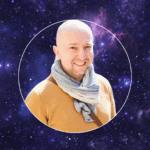 “During the Spring School, it’s essential for the university to reach out to key stakeholders in the space sector. Just as no one ventures into space alone, shaping the next generation of space professionals is a collective effort. It requires close collaboration with those already active in the space field—from fundamental researchers at universities and research centers to our colleagues in space education at institutions like ESA Academy. We also engage with private companies and experienced professionals who are eager to pass on their valuable insights.” André Füzfa – Professor at UNamur, Full Professor at the University of Namur and coordinator of the Spring School.
“During the Spring School, it’s essential for the university to reach out to key stakeholders in the space sector. Just as no one ventures into space alone, shaping the next generation of space professionals is a collective effort. It requires close collaboration with those already active in the space field—from fundamental researchers at universities and research centers to our colleagues in space education at institutions like ESA Academy. We also engage with private companies and experienced professionals who are eager to pass on their valuable insights.” André Füzfa – Professor at UNamur, Full Professor at the University of Namur and coordinator of the Spring School.
Inspiration from Experts
Each morning featured insightful lectures delivered by a distinguished panel of experts spanning a wide range of disciplines. Speakers included André Füzfa (UNamur), Marc Toussaint (ESA/EPFL), and Natacha Callens (ESA Academy), alongside specialists such as Fabienne Delhaise (ESA), Elisa Tasev (Royal Observatory of Belgium), and artists Alessia Sanna and Alexandre Weisser. The lineup also featured Loredana Santo (University of Rome Tor Vergata), Alix de Beusscher (Aerospace Lab), Christophe Bénaroya (Toulouse Business School), Alain De Neve (Belgian Royal Military Academy), Gabrielle Leterre (University of Luxembourg), and Jacques Arnould (CNES), providing participants with a rich, interdisciplinary perspective on space science and policy. Topics included launchers, astrodynamics, space and ground segments, space and planetary defense, smart materials for spatial applications, cybersecurity, business, law and ethics of space activities, space policies and arts.
“ If we want to equip students with the tools they need to succeed in life—as engaged citizens and future professionals in the space sector—we must rely on a strong network of partners to showcase the many facets of the space domain. That’s why we invite passionate experts to share their knowledge and experience with the students ». André Füzfa – Full Professor at the University of Namur and coordinator of the Spring School.
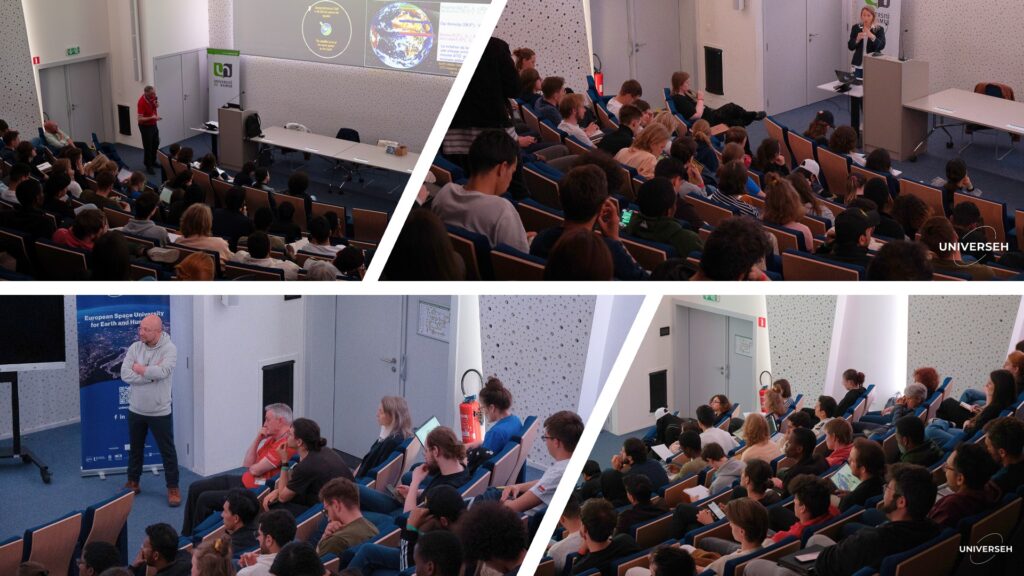
Behind-the-Scenes Access to ESA Facilities
Students had a unique and exclusive access to two key ESA sites during the week. The first was the ESA Academy Training and Learning Centre, where students discovered how the agency collaborates with universities to share expertise, technical skills, and best practices with the next generation of European space professionals. The second was a visit to ESA’s ESEC-Redu station—the European Space Security and Education Centre—which provided insight into satellite operations, space security initiatives, and the management of Smallsat and Cubesat missions. These visits offered an insider’s view of the infrastructure driving Europe’s space ambitions.
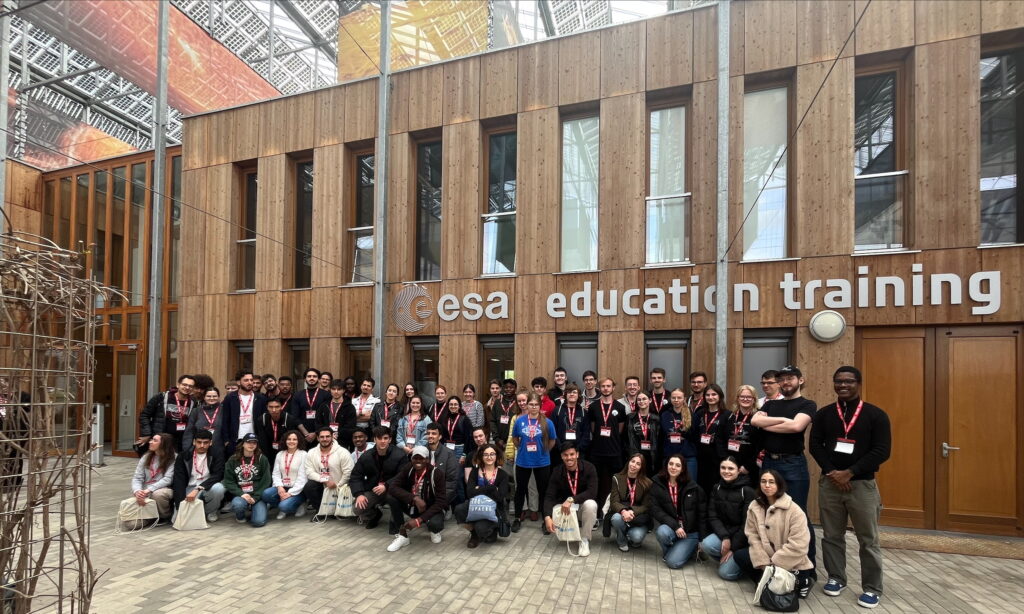
Training for the Future
Afternoons were dedicated to Astronaut Training Camp at the Euro Space Center and ESC, where students practiced simulations, coordination drills, and mission planning.
The highlight of the week was the ArMoongeddon Group Concept Study, a team-based challenge where participants created a proposal for a fictional space mission focused on asteroid deflection for lunar mining, addressing multidisciplinary issues including engineering, economics, law, ethics, and more. On Saturday morning, teams presented their concepts to a panel of mentors and peers, showcasing technical creativity and collaborative problem-solving.
“Team-building activities and the concept study provide an opportunity to highlight the diversity of intelligences and the value of interdisciplinary approaches in solving space-related challenges, as the space sector requires a wide range of skills.” André Füzfa – Full Professor at the University of Namur and coordinator of the Spring School.
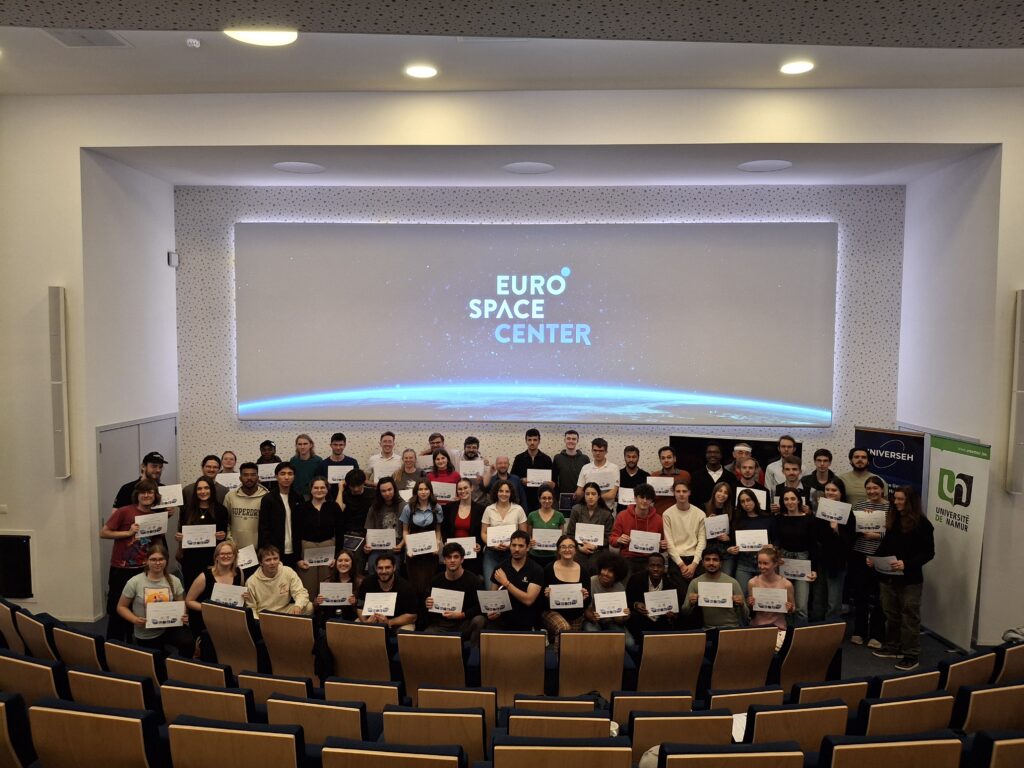
Evenings Under the Stars
Evenings were just as packed, with lectures and stargazing sessions deepening the sense of wonder and sparked discussions well into the night.
A Launchpad for Careers
The Spring School also connected students with potential employers. ESA Academy staff and industry representatives hosted career sessions and a space job fair, offering insights into internships, graduate roles, and research pathways.
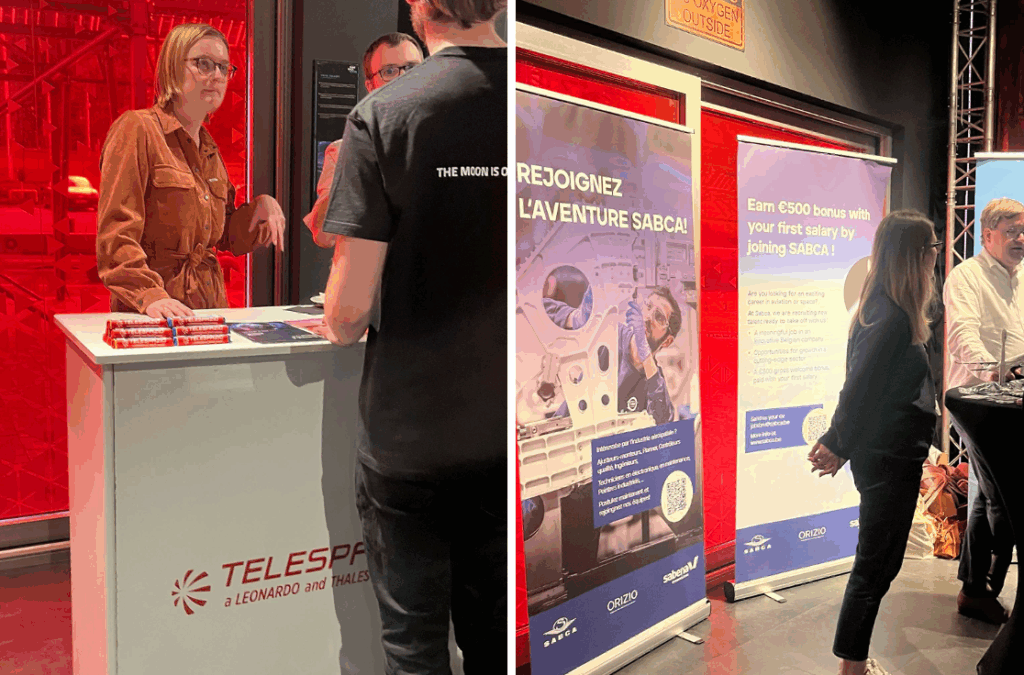

Funded by the European Union. Views and opinions expressed are however those of the author(s) only and do not necessarily reflect those of the European Union or European Education and Culture Executive Agency (EACEA). Neither the European Union nor the granting authority can be held responsible for them.